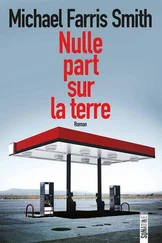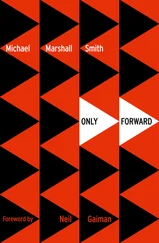‘I’ll pay you more—’
‘That’s not the point.’
‘Then why did you raise it?’
‘Dunno. Just did.’
The customers had now drifted away in embarrassment. One had gone to examine a shelf of special promotions; a couple had left the shop altogether; another, thought William, had been carrying a bottle of unpaid-for wine when he walked out of the door.
William rubbed the back of his neck. ‘Look, Paul, if you’ve been unhappy here you should have said something. We could still sort this out. You’ve got a great future ahead of you in the wine trade.’
‘Thanks. With Oddbins. I’ve got a great future with them.’
William sighed. ‘I can’t stop you, can I?’
‘No.’
William sensed that there was no point in prolonging the discussion. ‘All right. But you don’t think that you should work your notice? A week at least?’
Paul looked surprised. ‘Notice?’
William stared at his assistant. ‘No?’
‘I said that I’d get over there this morning,’ said Paul. ‘Saturday’s busy for them. They’ll need me.’
William stretched out a hand. The young man hesitated, then took it, limply. Nobody, thought William, has taught him to give a proper handshake. Where was his father? And then it occurred to him: have I taught Eddie how to shake hands properly? Where have I been?
William gripped Paul’s hand. The young man winced. ‘Ow. Let go.’
William smiled apologetically. ‘Sorry. It’s just that when you shake hands you should give a little bit of pressure - just a little bit, to show that you mean it.’
‘Mean what?’
‘Mean what a handshake is meant to mean. In this case . . . well, I suppose I’m wishing you good luck and also . . . well, I’m saying thank you.’
William looked down on his assistant; he was appreciably taller, and better built, too. And he had everything, he thought, while this young man seemed to have nothing: a rather dim girlfriend somewhere, an mp3 player that he was always fiddling with, not many clothes - the scraps of a life. He slept on somebody’s floor, William remembered him once saying; slept on the floor of a shared flat because he could not afford to rent his own room.
Paul hesitated. ‘Yeah, well, thank you too. You taught me a lot.’
William frowned. Had he?
‘Yeah, you did. You always explained things really well. You did.’
‘I’m glad.’
‘And you were kind to me too.’ Paul paused. ‘I’m not really leaving because I don’t like you or because you didn’t pay me enough. I’m leaving because I want a new job . . . You know how it is.’
William reached out again and put an arm on the young man’s shoulder. It was bony. He wanted to embrace him, but could not. He wanted to say sorry. ‘There’s something I want to give you before you go.’
‘What?’
William walked through to the office and took his cheque book out of the drawer. Then he sat down and wrote out a cheque for one thousand pounds. Returning to the counter, he passed the cheque over to Paul, who stared at it with wide eyes.
‘That’s what they call a golden parachute,’ said William. ‘Ever heard of it?’
49. A Confession of Loneliness
‘That was generous of you,’ Marcia said. ‘One thousand pounds. And he didn’t give you any notice at all?’
‘Ten minutes,’ said William. ‘Maybe fifteen.’
It was Saturday evening, and Marcia was sitting on William’s sofa, her favourite seat in his flat. She wished that he would join her there, and occasionally she patted a cushion, not too overtly, she hoped, but in a way that could be interpreted either as an adjustment of the upholstery or as an invitation. But William, if he was aware of the gesture, ignored it and remained firmly seated in the place that he preferred, a single armchair on which it would have been impossible for Marcia to perch, had she decided to try.
Marcia had come round to the flat in response to William’s quietly desperate telephone call earlier that day. He had called at about five, an hour before the shop was due to close. ‘I’ve had it,’ he said. ‘I’ve been single-handed all day. I’m finished.’
Marcia had immediately offered to come to his aid. ‘Poor darling,’ she said. ‘Would you like me—?’
He did not let her finish her question. ‘To cook supper? Yes, I would. You’re an angel.’
The compliment thrilled her. He had occasionally called her an angel before, and the term had given her cause to debate with herself the precise implications of the compliment. Just how warmly did one have to feel about somebody before angelic status was conferred? Did one have to feel actual affection?
Now, however, there was no time to consider nuances. ‘I need to talk to you about something,’ she heard William say. ‘A problem.’
‘Oh . . .’ There were so many things she would have loved to talk to William about other than problems. In a rare moment of realism she thought, I’m a sympathetic ear for him, nothing more.
And now, sitting with Marcia, and with a restorative gin and tonic on the table beside him, William unburdened himself of the day’s trials. He told her about Paul’s sudden decision to leave; he told her about the hectically busy day; he told her about the sheaf of unfilled orders that he would have dispatched had Paul been there to assist him with the customers. And he told her about Eddie’s Damascene conversion to liking Freddie de la Hay and the resultant failure of his plan. Marcia listened attentively, making sympathetic faces as each hammer blow was described.
‘I feel so frustrated,’ said William at last. ‘I feel that I just allow events to wash over me. Where is my life going?’
‘Make a list,’ said Marcia. ‘Make a list of the things that are wrong, and then write a solution. Look, come over here. I’ve got a pen. Get some paper.’
Once again, she patted the cushion beside her. William hesitated, but decided that it would be churlish to remain where he was. They were going to make a list, that was all. He rose to his feet and crossed the room.
‘Now,’ said Marcia, folding the piece of paper he handed her. ‘Let’s write down the big thing, the worst thing in your life.’ Her pen was poised over the paper. ‘Begins with a capital E, I’d say.’
William sighed. ‘I suppose so.’
Marcia wrote down: Eddie. Won’t grow up. Won’t go.
‘All right. Now number two. “Being short-handed at the shop. Need to replace Paul.”’
William nodded. ‘That’s a serious one.’
‘All right. Serious, but still number two.’ Marcia lowered her gaze. ‘On to number three.’
William looked up at the ceiling. ‘I can’t really think of a third thing,’ he said. ‘I suppose . . .’
‘Loneliness?’ Marcia spoke softly, almost seductively. ‘I’d say loneliness must be number three. Here, I’ll write it down. “Loneliness.”’
‘I don’t know—’ William began.
‘Of course you’re lonely,’ Marcia interrupted. ‘You’re all on your own.’
‘But that’s exactly what I’m not,’ protested William. ‘I’d like to be on my own, but there’s Eddie. And now there’s Freddie de la Hay. I’m not really on my own.’
Marcia smiled, tolerantly, with the air of one who has an insight that others lack. Men often had no idea how lonely they were, how much they needed women; she was convinced of it. Masculine independence? Nonsense. That was an oxymoron.
‘What do they say about big cities, William? That they’re the loneliest places on earth. Full of people, millions of people, but how many of those are by themselves, really lonely? How many do you think?’
William shrugged. ‘Four hundred and seventy-five thousand,’ he said.
Читать дальше










